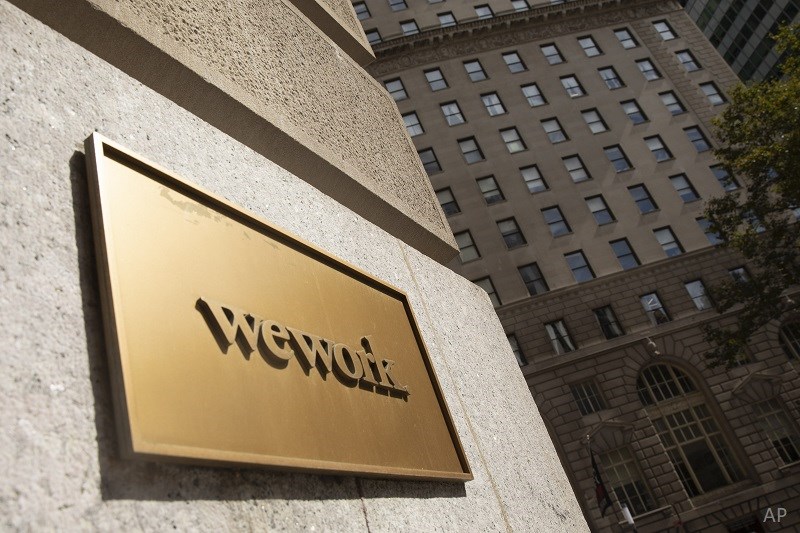
I began my Morningstar career by laying bricks: Study a fund's performance record and portfolio holdings, interview its manager, compose an analysis. Fund by fund, month by month, year by year. My knowledge came one brick at a time, lacking a blueprint, unaware even of what I was constructing.
That wasn't the fastest path toward recognizing that funds are best understood as outputs of an institution rather than as stand-alone entities, but I eventually got there. Slowly, patterns emerged. Each of this company's stock funds trades frequently. This firm hires from the outside. That one promotes from within. This organization is quick to liquidate its losing funds. With repetition, the individual clues become evidence.
At that point, I realized the importance of organizations. For example, Fidelity's stock funds didn't consistently beat the indexes (as they did at the time) because the company hired the pick of the MBA litter (although that helped), but instead because of its equity researchers' "co-opetition," wherein its ambitious analysts eagerly attempted to best their peers while also sharing ideas. Until the early 1990s, when the rest of the marketplace caught up, Fidelity's investment culture provided the firm with an ongoing advantage.
Gradually, I converted my observations into principles--the foundations of excellence, as it were. These are but guidelines: It would be foolish to suggest that such broad rules apply to all situations. Nonetheless, they are useful rules of thumb.
- Compensation schemes don't matter.
- Company structures often matter.
- The company's leaders greatly matter.
The money trail fails
A few years back, I disputed the highly popular belief that fund managers should have "skin in the game" by owning the funds that they ran. My primary counter was specific: If a fund performs well, the manager's professional benefit will dwarf his investment gains. That is, if an equity fund beats the S&P/TSX 60 over time, the manager's pay will skyrocket. The extra profits to his personal shares are beside the point.
My secondary cavil was general. The claim didn't stand to reason. For one, if holding a manager's feet to the fire creates better investment results, then mutual funds with performance fees--which reward success and penalize failure--should outdo those without. For another, people have pride. Most sincerely wish to do the best job that they can, regardless of incentives.
That may be my worst-received column. Readers emailed to tell me I was wrong. Morningstar's researchers were of the same view, as was Nassim Taleb, the respected author of "The Black Swan: The Impact of the Highly Improbable," who tweeted his dissension. It seems that almost everybody believes in the power of financial incentives, even if--as in this case--the incentive is feeble.
Ah well. Better minds than mine have been treated similarly. Last month, 2019 Nobel Laureates Esther Duflo and Ahbijit Banerjee wrote "Economic Incentives Don't Always Do What We Want Them to Do," which extends my argument. The authors studied the effect of financial incentives across many fields and found that such programs frequently do not behave as advertised. They, too, received brickbats.
Most mutual fund observers will continue to monitor how portfolio managers are compensated. I, along with these authors (who, yes, studied the subject), will not.
Owned, traded, or partnered?
Nobody cared more about fund-company structures than Jack Bogle. For 50 years (if not more) he lectured on the importance of ownership. The secret to understanding fund-company behavior was recognizing who held the keys.
The worst fund companies are those with owners who want cash now. Subsidiaries of larger firms that want them to disgorge ever-greater profits land in this category, as do fund companies owned by voracious founders who extract from the business rather than reinvest into it. Publicly traded fund companies are little better. Their shareholders might claim to be patient, but report one bad quarter and that alleged forbearance will disappear.
Best, aside from Vanguard's at-cost structure (this was, after all, the argument made by Vanguard's founder), are private partnerships. Freed from the pressures exerted by outside owners, the company's partners have the luxury of taking the long view. They can be more than just companies creating products. They can become investment stewards.
I think that is largely correct. There are, however, too many exceptions for this rule to be more than suggestive. For example, T. Rowe Price (TROW) has long been publicly listed, and Bogle justifiably regarded that organization as among Vanguard's most-dangerous competitors. Also, while conglomerates often do treat their fund-company subsidiaries as cash cows, the tendency is prevailing rather than predominant.
Hail to the chief!
The best fund companies are strategic. They are willing to exchange today's profits for tomorrow's improvements. (Admittedly, this is easier when running a fund company than with many other businesses, given the industry's high profitability. Once a fund company reaches a certain size, it never need worry about bankruptcy.) Being strategic is more than just a mission statement; it is revealed in the company's actions.
Strategic organizations walk--not run--to launch new funds. Better to be late in developing a fund that will never require apologies than to be early with one that will be folded years later with quiet embarrassment. Strategic organizations explain their offerings clearly to avoid surprises. Shareholders who receive what they expected become satisfied shareholders, and satisfied shareholders beget additional shareholders.
Strategic organizations charge below-average prices. They will accept lower margins on each investment dollar, because over time, they expect to collect more dollars. They are confident in what they offer. Strategic organizations create sustainable cultures. They hire those who appear to share their views, promote those who behave accordingly, and purge themselves of those who do not.
These things come from people--from the firm's leadership. The company's leaders set the direction and breed the culture. They decide whether the company will constantly chase its tail by doing what worked last year, or proceed calmly by anticipating what will work this year. Excellent fund companies are not created by adjusting portfolio-manager incentives, nor necessarily by finding better owners. They come about because they have leaders who dare to exercise foresight.
Unfortunately, that attribute is not easily measured, if at all. We can find how many fund shares portfolio managers own, as well as their compensation schemes, from fund filings. We can readily learn how the fund company is owned. But determining the mindset of its leadership is far more challenging.








.jpg)












